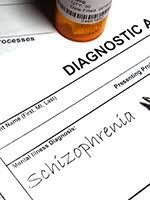Recognizing key symptoms aids early schizophrenia relapse intervention. Here are 10 important symptoms to monitor:
Recognizing these symptoms early can be crucial in seeking help and preventing a full relapse. If you or someone you know is experiencing several of these symptoms, especially if they’re worsening, it’s important to contact a healthcare professional.
Creating a simplified rating scale for the 10 important symptoms of a schizophrenia relapse can help individuals and caregivers monitor changes over time. This scale is designed for general monitoring and should not replace professional medical advice. If concerns arise based on this scale, seeking help from a healthcare professional is strongly recommended.

Instructions: For each symptom listed below, rate the occurrence over the past week by choosing the number that best describes the current situation:
1. Seeing or hearing things that aren’t there.
2. Believing things that aren’t true.
3. Talking in a way that doesn’t make much sense.
4. Feeling very suspicious for no reason.
5. Pulling away from friends and activities.
6. Not taking care of personal hygiene.
7. Having trouble with focus and memory.
8. Feeling really down or experiencing mood swings.
9. Sleep problems.
10. Increased nervousness or agitation.
Total Value: 0/30
Scoring
0-10: Symptoms are not present or very minimal; continue regular monitoring.
11-20: Mild to moderate symptoms; may require closer observation and potentially discussing with a healthcare professional.
21-30: Moderate symptoms; advisable to consult with a healthcare professional for a thorough assessment.
Remember, this scale is an aid for understanding and communicating the severity of symptoms; it's not a diagnostic tool. Any concerns or high scores should prompt a consultation with a healthcare provider for comprehensive evaluation and appropriate management.
Copyright © 2024.signalbytestechnologies.comAll Rights Reserved.